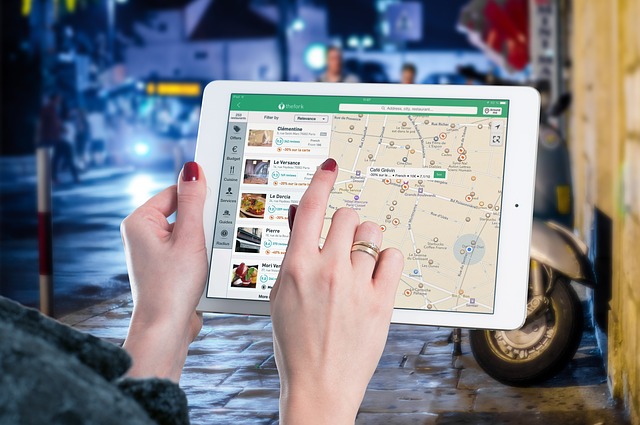Identity theft refers to the situation in which an individual steals your personal information with the intention of committing fraud. Some ways in which this information can be fraudulently applied are through loan applications, tax returns or health related services. Moreover, such actions may ruin your credit rating and even more importantly, they can be costly and time consuming to repair. It follows that keeping your identity secure, especially when you are browsing the web is highly important. Even more importantly, you should educate your children on maintaining online privacy as well, as in the opposite case, identity could be stolen from them and they might enter their adulthood with serious problems to deal with. When identity is stolen from children, the consequences can be even worse than when it is stolen from adults, as it usually takes time for such thefts to be discovered, while children and their parents usually don’t pay to much attention to the child’s credit rating. When the child becomes an adult and starts paying attention, it is often already too late to have any significant impact upon what happened.
According to United States government, there are several distinctive categories of identity theft. Namely, those are child ID theft, which has been described above, tax ID theft, which refers to a situation where the perpetrator gets a hold of victims’ social security number in order to file misleading tax return, medical ID theft, which serves the thief to fraudulently debit your health insure provider, senior ID theft, which is quite self-explanatory and refers to the ID theft from our senior citizens, which are especially vulnerable consumer group in that respect and social ID theft, where the perpetrator accesses and abuses your personal information like pictures, name and other, in order to create a social media account and possibly commit damage to your reputation. It follows that no matter which consumer group you belong to, you’re probably at risk of identity theft. We recommend that you don’t worry about it too much, as it is something which is difficult to influence, however, there are some precautions which you can take, in order to keep your identity as safe as possible.
The United States government gives a few recommendations on preventing identity theft, i.e., on keeping your identity secure. Most of them are quite is to implement and we recommend that you start with those. Now let us list the ways in keeping your identity secure. You should keep your social security number safe at all time. Unless you urgently need it, don’t carry it around with you and only hand it to an authorised person when there is no other possibility. It is important that you never give out your personal information over the telephone or the internet, especially if you don’t know/trust the person/company who is on the other side. For example, if you need to pay for something over the phone, rather ask the person to give you their bank account information so you can transfer the money, than giving them your personal information over the phone, as even a company you trust can sometimes make a mistake and hire a wrong type of person, which might abuse your information. When you are withdrawing cash from ATM, giving out personal information at the bank or discussing your health issues with your nurse, always pay attention to people who might be listening in to your conversation. Don’t leave your mail box unattended for days, if you plan to go on a holiday or business trip, ask the post office to hold your mail. Regularly pay attention to any potential changes in your bank account. With the accessibility of online banking and other services which some banks offer, like SMS notification of all bank transfers and withdrawals, this shouldn’t be too big of a deal. If your bank charges for such services, remember that 1-10€/month (my bank charges 1€, I don’t know about charges of others) is a small charge in comparison to having your bank account emptied. Shred paper with personal information before throwing it into the bin. There is a low likelihood that someone is going to go through the trash in order to get a hold of your personal information, but you can never know. Have your smart devices (computers, telephones, iPads, etc.) secured with complex passwords and change those passwords on a regular basis. Whenever possible, your passwords should include big letters, small letters, alphanumeric characters, etc. The more complex the better. Also secure your network with firewalls and anti-virus software. Usually you can find free versions of high quality software online. We use Avast. Remember, taking at least some of the steps to secure yourself is better than taking none of them!
Sometimes, no matter how many precautions we take, our identity gets stolen anyway and in such cases it is important to deal with it as quickly and efficiently as possible. The first thing you need to do is report the incident to the responsible authorities. You can start with the police and they will advise you where to go next. Once you report the crime, you will get a confirmation, which can help you resolve issues with banks, creditors and other institutions you might have fallen out of favour with. If your identity has been stolen on a long-term basis, you can also report it to human rights watch, if your medical ID has been stolen you should report it to medical care fraud office, if tax identity was stolen you should report it to your national tax office, etc.
Recently, law enforcement agencies have noticed a new trend within the identity theft area, which they refer to as synthetic identity theft. In contrast to predominant identity theft style, where the perpetrator steals all the personal information of a person in order to build a fresh identity, synthetic identity theft refers to an instance, where the thief pinches parts of information from different individuals, in order to create an entirely new persona, e.g., a person might steal the social security number of one person, tax ID from another and medical ID from the third person, in order to unify all of them into a single fictitious individual. Because such a scheme is not related to one single individual, it is much more difficult to identify and even more difficult to prevent. It is important to note that children are especially vulnerable to this type of fraud. The only way to deal with synthetic identity theft is to continuously monitor what is happening with your accounts and identity where it matters. If you discover you’ve been a victim, report the incident immediately.
As you’ve been able to observe, there are many distinctive types of identity theft and unfortunately, they are quite common. Thankfully there are many precautions you can take in order to avoid it. If you are interested in protecting your identity online, you could also look up BitBank, which is a company, which specializes in securing your personal information on the world wide web. If you wish to explore more on the topic, we encourage you to browse through other related articles on our website. Lastly, it needs to be restated that you shouldn’t worry about the issue too much, as it is commonly related to sheer luck. Stay lucky J



































